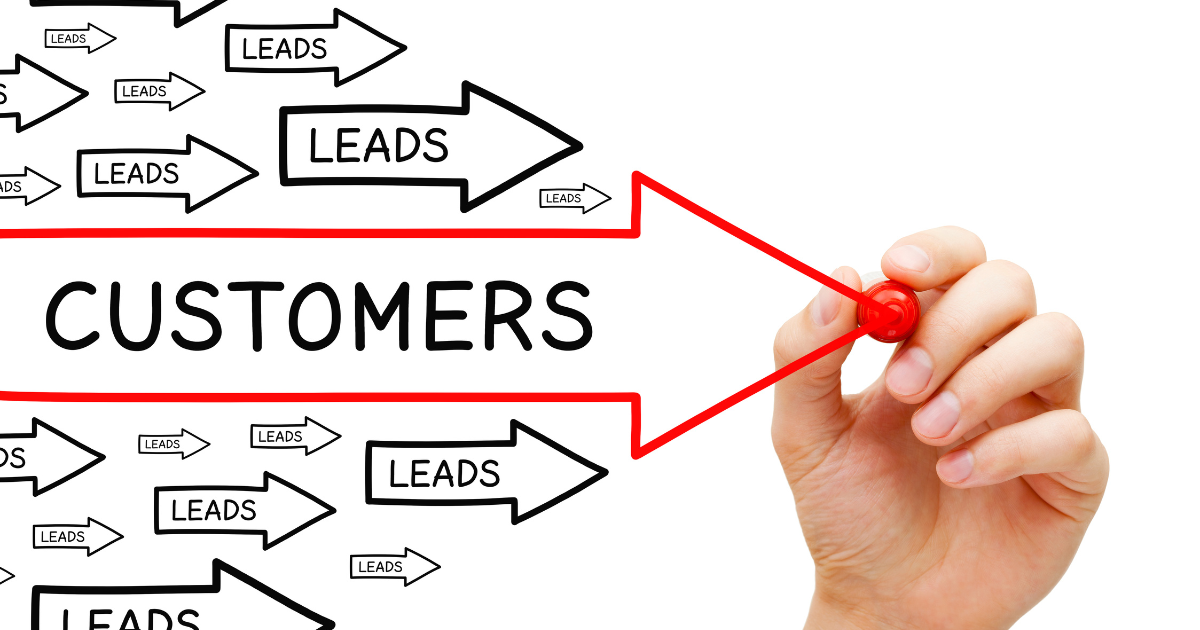Published 02 Jul 2025
From Showroom to Sold: The Psychology of Nurturing Car Sales Leads
The car business is a people business. To attract more customers, you need to have more than just the right inventory or offer strong incentives. You need to understand the people who go through your showroom floor or call your dealership.
Buyers today are informed than ever. They’ve spent hours researching the car model or type of vehicle they want, watched countless reviews, compared prices from different dealerships, and some even pre-qualified for financing online. So if you’re still using the traditional sales playbook, you might not be as effective as you should be.
Every day, leads flood in through your CRM, but only a handful ever become buyers. But it’s not because they’re not interested in buying from you. Often, your sales team just doesn’t have a deep enough understanding of how your customers think. Plus, they might not be following up as effectively as they should.
What Are Car Sales Leads, Really?

On paper, a car sales lead is just contact information of someone who filled out a form, clicked on a trade-in tool, or requested a quote. But a lead isn’t just a name. It’s a signal that the buyer is showing some level of intent, whether they’re ready to buy tomorrow or just starting their research.
The best dealers don’t treat all leads the same. Some are hot and looking to buy right away. Others are lukewarm, comparing options or figuring out financing. Then there are the cold ones who are early-stage shoppers who may not buy for weeks or even months. Understanding where each lead falls helps your team follow up in a way that matches their mindset.
The real power comes from knowing how to read these signals and adjust your approach so you can turn car sales leads into actual sales.
Understanding the Buyer’s Mindset

Buyers Aren’t Guessing; They’re Researching
Most buyers are diligent about their homework. Before they submit a lead, call your dealership, or step foot in your showroom, they’ve already done 15 to 20 hours of research. By the time they contact us, the deal is already halfway done.
The role of the sales team isn’t to sell them a car. It’s to help car sales leads move towards an informed buying decision. The best way to do this is to ask them what’s holding them back from continuing with the sale–is it the car or the money?
They Buy with their Emotions First
When people are buying a car, they’ll talk about safety ratings, advanced features, and resale values. But behind this logical approach is the fact that most buyers often decide to buy a car based on their emotions.
Most car sales leads are driven by the comfort, identity, pride, or freedom a new vehicle might give them. For example, new parents want to feel like their family is safe in the SUV they’re trying to buy; that fresh grad is thinking about the independence a new car will give them.
Salespeople need to understand where the buyer is coming from. Don’t just talk about the car’s features. Ask the buyer what matters to them and understand the emotional reasons behind a decision. This way, you can speak directly to the buyer’s priorities.
Remember: car sales leads respond better to conversations that tap into their personal motivations.
Trust Comes Before the Sales
Most car sales leads walk into a dealership expecting to be sold to, so they have that wall of skepticism that can be hard to break through. Think about it: a car is a major purchase, and for some people, it’s one of the biggest financial decisions of their lives. Customers are handing over their time, money, and confidence in you to guide them through the sales process.
People don’t buy cars from people they don’t trust. No amount of incentives or urgency can overcome a lack of credibility. When buyers feel like you’re working with them, not on them, they’ll open. And when they’re ready, they’ll buy from the person who made them feel safe.
Trust that’s built through grounded and honest communication helps turn car sales leads into paying (and hopefully, returning) customers.
Why Most Car Sales Leads Don’t Convert

Follow-Up Lacks Personalization
One of the biggest mistakes dealerships make is treating all leads the same. It’s tempting to lean on templates and automation, but buyers can spot a canned message a mile away. If someone looks at three mid-size SUVs and you email them about full-size trucks, they’ll check out.
Instead, tailor your follow-up based on what the lead did. Did they watch a walkaround video? Send them a comparison of trims. Did they play with your payment calculator? Ask if they want help with financing questions. Relevance turns cold emails into real conversations.
When personalization is missing, it’s hard to keep car sales leads engaged and moving forward.
Timing Isn’t Right
Dealerships live on deadlines. But buyers don’t care if it’s the end of the month. Some leads need time. If you’re too aggressive early on, you’ll push them away. But if you disappear completely, they’ll go cold.
The key is pacing your follow-up based on what the buyer is doing. If someone opens your pricing email three times in two hours, that’s a good sign they’re ready to talk. If they haven’t engaged in days, you can scale back and check in later. Car sales leads convert best when the timing feels right and is never forced.
Being patient but present is essential in working with car sales leads who need more time.
The First Touch Doesn’t Add Value
A lot of follow-up efforts start with “When can you come in for a test drive?” That’s not a bad question. But it shouldn’t be the first one. Early in the process, buyers are looking for guidance.
Your first message should offer something useful. That might be a helpful article, a quick video, or even a simple answer to a common question. When you give value first, you create the kind of interaction that builds momentum.
Your goal is to move car sales leads from curiosity to confidence.
Persuasion vs. Manipulation

What’s the Difference?
Persuasion is about helping someone make a decision that’s right for them. It’s rooted in honesty and empathy. Manipulation is about getting someone to make a decision that benefits you, regardless of what’s best for them.
Buyers can feel the difference. Persuasion builds relationships. Manipulation burns them.
Car sales leads respond better when you guide them instead of pushing them.
Using Psychology for Good
There are proven techniques that help buyers feel more confident. For example, Robert Cialdini’s principles of persuasion, like social proof, reciprocity, and consistency, are often used in sales. But they should be used with integrity.
It’s one thing to mention that a particular trim is popular. It’s another to pretend the deal ends today when it doesn’t. The goal is to inform and guide, not pressure.
Dealers who apply these methods honestly tend to attract more qualified car sales leads.
Short-Term Wins Can Hurt Long-Term Growth
Even if manipulation gets you a quick sale, it almost always causes damage. Unhappy buyers leave bad reviews. They tell their friends. They don’t come back. On the other hand, a buyer who feels respected is more likely to return for service, buy again in a few years, and refer others.
The most profitable dealerships think long-term. They know that trust and reputation are more valuable than any one deal. Those values matter even more when managing your car sales leads pipeline.
How to Nurture Leads from Click to Close

Follow-Up Takes Multiple Touches
Most leads don’t convert after one call. It takes several touchpoints, sometimes five or more, so consistency matters. The best follow-up plans combine calls, emails, texts, and even retargeting ads to stay on the buyer’s radar.
But volume alone isn’t the answer. Quality matters more. Each touchpoint should feel helpful, not repetitive.
If you're serious about converting car sales leads, your process has to feel useful, not annoying.
Use Behavior as Your Guide
If a lead looks at your trade-in tool, follow up with an offer to appraise their car. If they spend time on financing pages, send them resources about credit tips or payment options. Watch what they do, then meet them there.
This kind of follow-up feels natural. It shows the buyer you’re paying attention and that you’re ready to help.
Car sales leads often move forward faster when your outreach reflects their actions.
Equip Your Team to Have Better Conversations
Your salespeople need more than names and phone numbers. They need insights. They should know what the lead clicked, when they last engaged, and what questions they’ve already asked.
With the right tools, your team can stop guessing and start having real conversations. That’s how you take car sales leads and turn them into relationships that last.
Final Thoughts
Closing deals is less about having the most number of leads but more about how you manage them. Understanding that buyers are informed, cautious, and selective helps sales teams become more effective at what they need to do: guiding buyers through the sales process and listening to what drives their buying decisions.
It takes more than quick follow-ups and automated emails to win someone’s business. It takes relevance, timing, and consistency, all of which are built on a foundation of trust.
If your goal is to get more qualified buyers to actually show up, consider using a tool built for that exact purpose. CalenGrow helps dealerships increase appointment show rates by turning interest into commitment without adding more workload to your team.
The leads are out there. The question is: Are you ready to meet them where they are?
All blog posts
No blogs available
RevDojo is the all-in-one solution for automotive businesses looking to thrive in today's competitive market.
© 2024 Revdojo. All rights reserved.